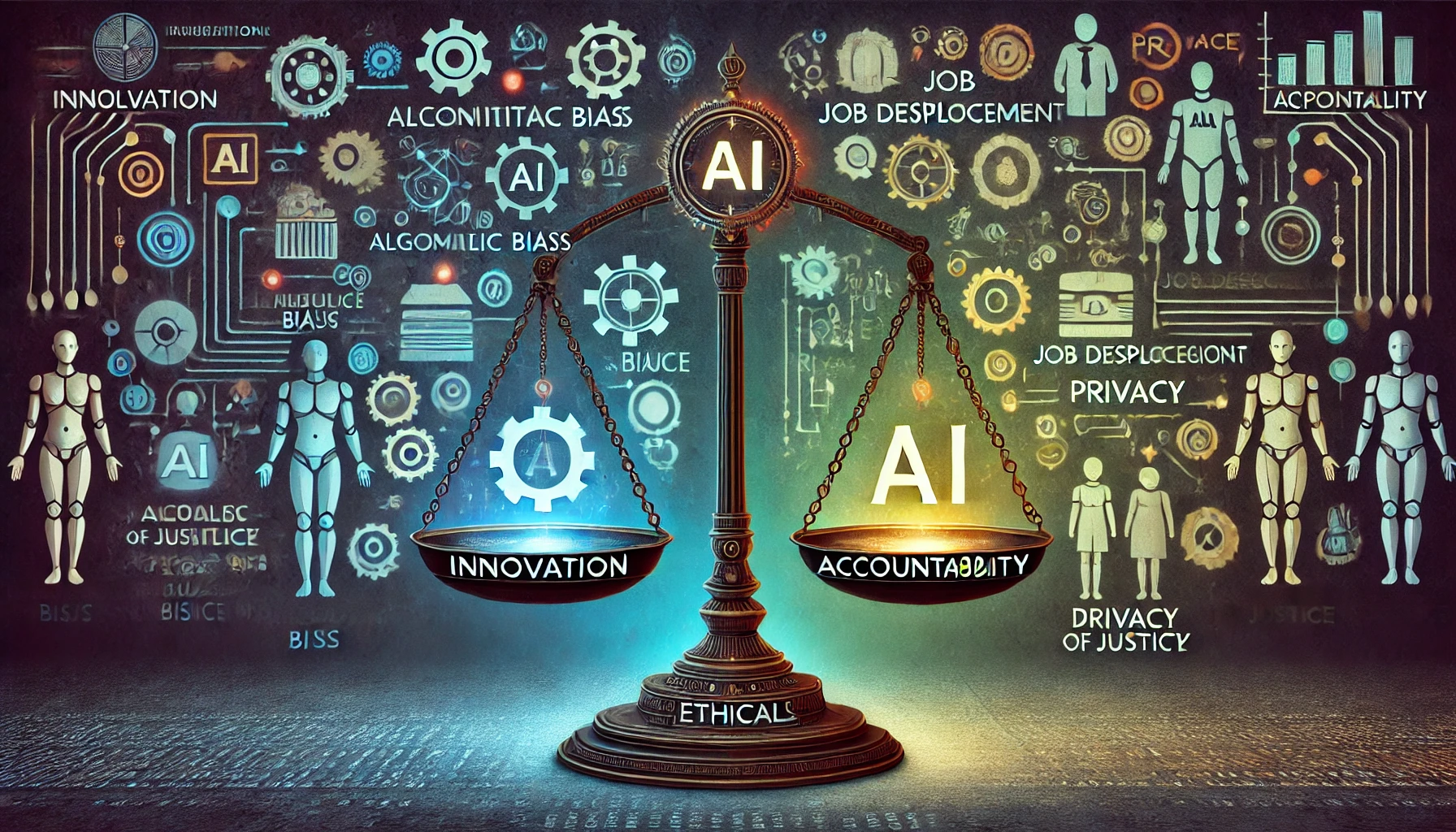The Ethical Dilemmas of AI: Balancing Innovation with Accountability

Introduction: The AI Balancing Act
Artificial Intelligence is like that one friend who’s brilliant but doesn’t always understand social boundaries. On the one hand, AI is revolutionizing industries, making everything from healthcare to customer service more efficient. But on the other hand, it’s stirring up a cauldron of ethical dilemmas. From biases in algorithms to job losses caused by automation, we’ve got a lot to unpack here. So, let’s dive into the murky waters of AI ethics and explore how we can ride this wave of innovation without drowning in responsibility.
Bias in Algorithms: Not So Neutral After All
One of the biggest issues with AI is that it can be biased. Yup, you heard that right—machines can be prejudiced. How, you ask? Well, algorithms are only as unbiased as the data fed into them. If that data reflects societal biases (spoiler: it often does), then the AI will perpetuate those biases. Think about facial recognition software that struggles with identifying people of color. It's not the AI's fault, it’s the data. But whose job is it to fix that? Enter: Ethical AI Development. Experts suggest using diverse data sets, continuous algorithm audits, and—brace yourself for the most shocking part—human oversight!
Automation and Job Displacement: Are Robots Coming for Our Jobs?
Let’s be real. When we hear the word 'automation,' a lot of us immediately think: job loss. And that’s not entirely wrong. AI is taking over repetitive tasks faster than you can say ‘unemployment benefits,’ leaving many workers nervous. Factory workers, customer service reps, and even journalists (hello!) are at risk. But before you start polishing your resume, remember that AI is also creating jobs—just not in the same way. The key here? Upskilling. Governments and companies should invest in training programs to equip people with the skills needed for new AI-driven roles. Instead of resisting the change, let’s evolve with it.
Privacy Concerns: Big Brother 2.0?
Have you ever had that eerie feeling that your devices are listening to you? With AI integrated into our smartphones, smart speakers, and even smart fridges, privacy concerns are a huge deal. How much data are we comfortable handing over to these systems, and who’s monitoring it? The big ethical question here is about consent. Users should have a clear understanding of what data is being collected and why. Enter AI ethics boards and transparent privacy policies. Some argue for stronger regulations, akin to GDPR in Europe, to ensure data isn’t misused or hacked. Because, let’s face it, no one wants their fridge to know more about them than their best friend.
The Solution: Building a Responsible AI
So, how do we build an AI system that balances innovation with accountability? It starts with the AI creators themselves. Ethical AI frameworks, like those being developed by organizations such as OpenAI and the Alan Turing Institute, are setting the standard for responsible AI development. These frameworks encourage transparency, fairness, and accountability at every stage. But it’s not just about the companies. Governments and regulatory bodies must play a role too. Stricter regulations, regular audits, and international cooperation can help keep AI development on the straight and narrow.
The Human Element: Accountability and AI Governance
At the end of the day, AI is a tool. And like any tool, it can be used for good or for evil. The onus is on us—humans—to ensure that AI is developed and used responsibly. Ethical AI governance means that every stakeholder, from developers to policymakers, must be held accountable for the technology they create and deploy. This includes implementing feedback mechanisms where the public can voice concerns about AI systems. A combination of ethical frameworks, regulatory measures, and good old-fashioned human decency will go a long way in ensuring AI is a force for good.
Conclusion: Where Do We Go From Here?
AI is here to stay, whether we like it or not. But it doesn’t have to be a dystopian nightmare. By addressing issues like bias, job displacement, and privacy concerns, we can steer the ship toward a future where AI benefits everyone. The trick is to maintain a delicate balance between innovation and accountability. It’s not an easy task, but with the right frameworks and a focus on ethical development, we can make it happen. So, what do you think? Can we create a world where AI is both innovative and responsible, or are we on the fast track to a robot-controlled reality?



